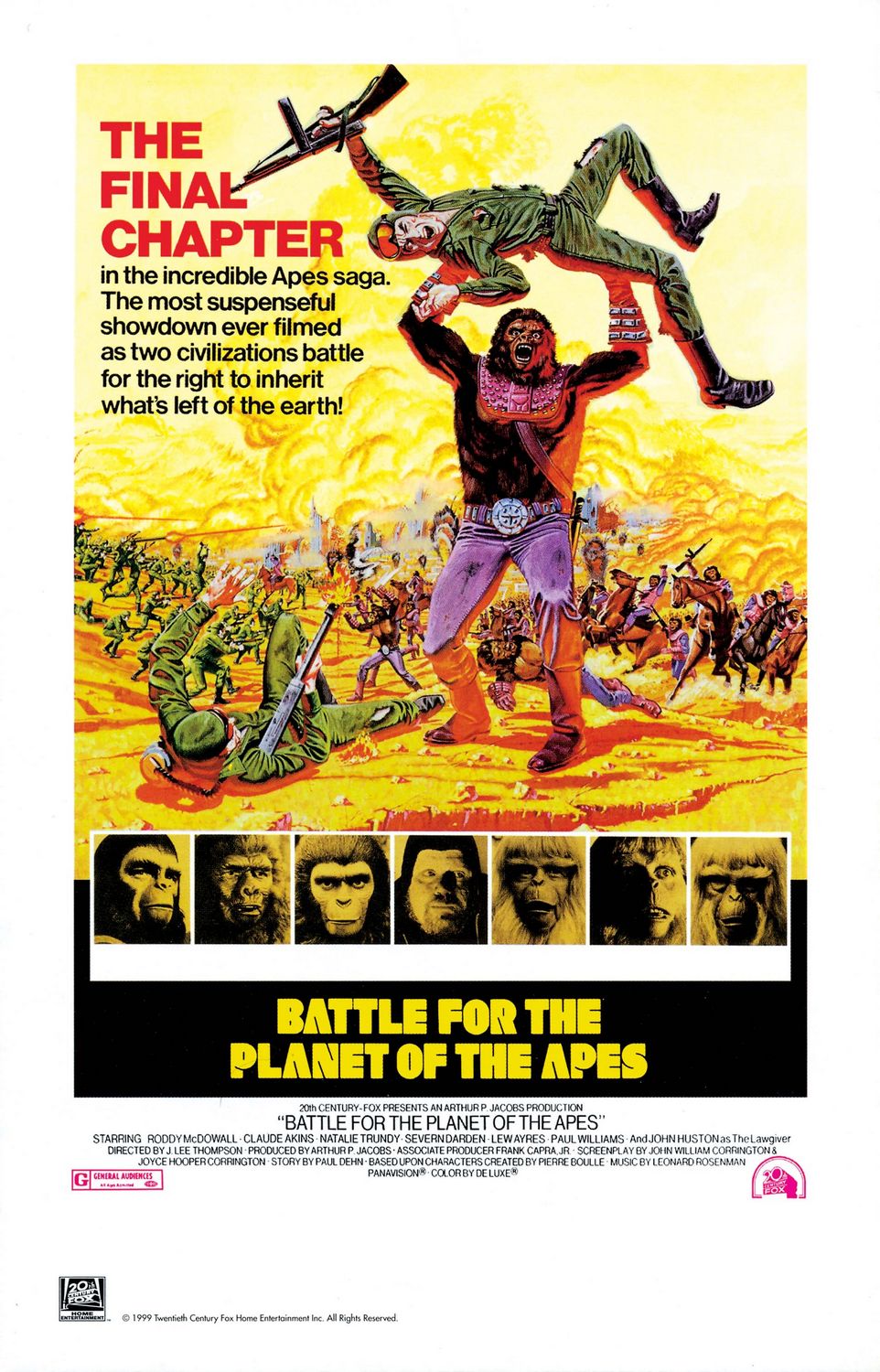 The original series came to a close in 1973 with “Battle for the Planet of the Apes,” which happens about a decade after the events of “Conquest of the Planet of the Apes.” In this film, nuclear war has taken out most of the Earth, and apes have begun to claim their superiority. Even though some humans and apes still live together, the humans are mostly used for slave labors and are considered inferior.
The original series came to a close in 1973 with “Battle for the Planet of the Apes,” which happens about a decade after the events of “Conquest of the Planet of the Apes.” In this film, nuclear war has taken out most of the Earth, and apes have begun to claim their superiority. Even though some humans and apes still live together, the humans are mostly used for slave labors and are considered inferior.
Roddy McDowall returns one last time as Caesar, the apes’ leader who has combined power and is trying to make Earth a better place (he has calmed down a great deal since the last movie). The first commandment he passed is very much like one of the Ten Commandments: “Ape shalt not kill ape.” Their mostly peaceful place is constantly under threat of being ruined as the bellicose gorillas, commanded under General Aldo, played by Claude Adkins, thrive for violence as a way of claiming authority. War is then started when a group of mutated humans (no, not the X-Men) that came from a radioactive wasteland of the fallen cities break into the apes city. James Kendrick described one scene in the movie as, “The scene depicting the humans riding out of the ruins in burned-out Jeeps and tanks is a striking one, and it must have been an inspiration for George Miller's Mad Max films.”
You might be thinking that this film sounds just as dark as “Conquest of the Planet of the Apes,” but no. “Battle for the Planet of the Apes” actually ends on a positive feeling. The final scene gives viewers the feeling that humans and apes have finally learned to live together peacefully, thus making the future Taylor discovered in the first movie completely false. Director John Huston is briefly in the movie, first at the beginning then at the end as the Lawgiver, not as a person who gives proclamations about the superiority of the apes, but rather telling the story of how Caesar created a peaceful community after the havoc caused by the nuclear war.
As a result, this series was brought full circle. Kendrick stated in his review, “Its political and social commentary, while often scathing, comes to a close with a hopeful outlook for the future.” Being made through six years and five films, this series told a magnificent tale of evolution. Even though the narrative was wearing thin by the end, the series will always be considered one of the landmarks and a great example of how entertainment value and political commentary can be brought together with great success.
However, we are not done yet. Yes, the original series has ended, but Tim Burton came around almost 30 years later and remade the first film. Stay tuned tomorrow to see how the remake was, but you probably might be able to guess or know how it turned out.
No comments:
Post a Comment